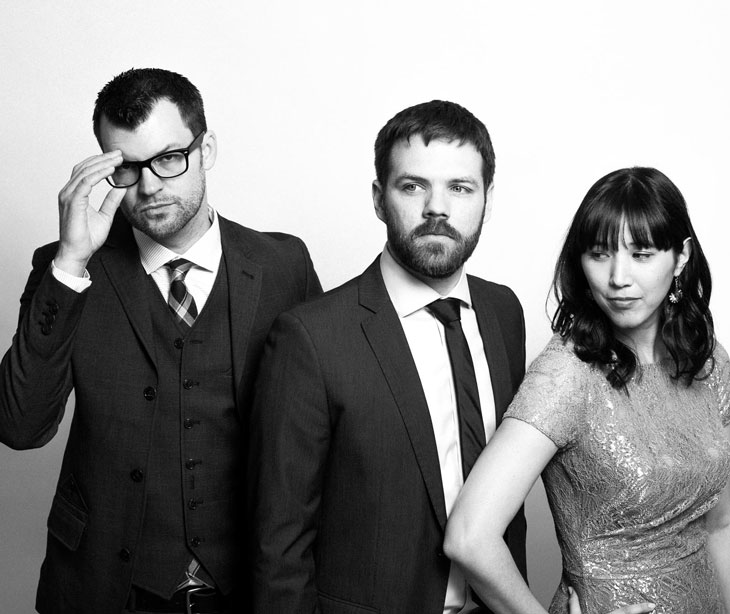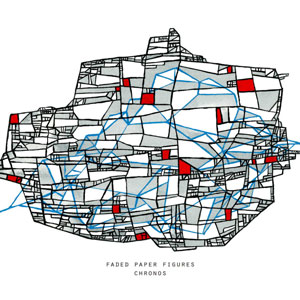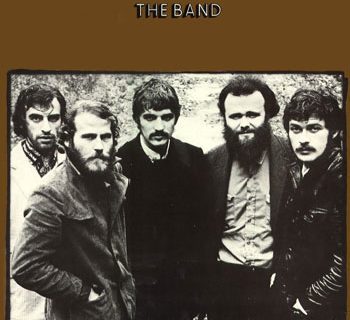The songs on Chronos, the sixth studio album by electronica trio Faded Paper Figures (FPF), bear the mark of a digital prophet on a mountain—someone who sees the madness of modern life, participates in it occasionally, and draws back to reflect and deliver erudite observations. But this comes as no surprise when you consider that lyricist R. John Williams (guitar and vocals) is a Yale English prof.
What do Williams' students think of his musical side gig?
"Most of them never find out," he admits, "or even get excited when they do. But once in a while, someone will come by my office, eager to talk about the band, and I’m always happy when someone on campus recognizes me as something other than just a professor."
FPF has been praised on NPR, and won a number of awards including "Best Song of the Year" in 2008 from the UC Irvine Songwriting Contest. They've also appeared on several television series, including ABC’s Grey’s Anatomy.
Chronos, released in January 2017, is a clean and minimal nod to 1980's new wave and delightfully danceable. In typical FPF fashion, each song is rich in polyphonic electronic beats, beautiful vocal harmonies, orchestral arrangements, and organic instrumentation, including sitar and spoken word elements.
The album is aptly named; as Williams points out: "Every song on the album is about time in one form or another.
In typical FPF fashion, each song is rich in polyphonic electronic beats, beautiful vocal harmonies, orchestral arrangements, and organic instrumentation, including sitar and spoken word elements.
"On 'Timewave Zero' I wanted to conjure up some of the imagery from two of the craziest and most brilliant books of the 1970s: Thomas Pynchon’s Gravity’s Rainbow and Terence McKenna’s Invisible Landscapes. As far as I know, no one had really considered them together, although Pynchon’s trippy time-bending narrative was all about the possibility of a 'zero' time, and McKenna’s whole crackpot theory was an effort to think of time as approaching some kind of 'zero' point. So it’s a combination of those ideas, with a hope that some kind of radical fight might still emerge out of all that lovely bohemian madness."
"Fatherlight," the most poetic and musically poignant track, describes a son and father trying to connect despite geographical and generational distance. At the beginning of the song poet Robert Bly's voice pays homage to time and space and exhorts us to a kind of transcendence:
We are leaving our time now.
We are leaving our time now.
There are places where time moves more slowly than here.
We honor all four directions,
East, West, North, South…
Williams is joined by two more impressive personalities; Heather Alden (vocals) is a medical doctor, and Kael Alden (bass, guitar, drums) writes music for a Hollywood production company. What does such a powerful brain trust bring to Faded Paper Figures? According to Williams it's both a blessing and a curse.
"We think and work a lot outside the songs we write," he says, "and that allows us to bring a lot of extra thought to our music. But it also means we're often busier and less focused on music than we wish we were. We don’t have time to tour and meet listeners as much as we’d like to, but it’s nice to have real jobs that keep us off the street."
Faded Paper Figures saw no reason to break up when Williams left the West Coast to teach in Connecticut, producing an album by sharing files and sending emails. The process often goes like this: John writes a chord progression on the guitar, records some vocals, and sends the file to Kael, who writes instrumental parts around it. At other times Kael will send a synth idea to John, who starts creating lyrics or guitar parts around it. After several months of back-and-forth a well-polished track emerges.
Across Chronos, It’s easy to hear the band’s mission, too. For Williams, it’s simple: "To tell the truth so beautifully it hurts."













